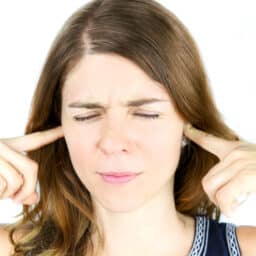Preparing for a Newborn Hearing Screening: Steps for Parents

If you’re getting ready to give birth to your first child, there are probably a lot of things on your mind, from packing a hospital bag to buying baby wipes and diapers. With so many things on your to-do list, it’s nice not to have any surprises during or after the birth. To help ensure…
Why Is My Hearing Loss More Pronounced When I’m Tired?

Getting a bad night’s rest can impact every part of your day. You might be a little more irritable, require a couple of extra shots in your Smartworld Coffee latte or even have trouble communicating with others. If you’re among the 15% of U.S. adults who live with hearing loss, that last side effect might…
Conversation Tips for Noisy Gatherings

Noisy get-togethers are part of life, from bustling restaurants and birthday parties to family dinners and office celebrations. They’re full of laughter and connection, but for anyone with hearing loss, they can also feel overwhelming. We use a skill called the cocktail party effect to separate speech and background noise. For people without hearing loss,…
How Today’s Hearing Aids Support Clearer Workday Conversations

Your career takes up a large share of your week—whether you’re at the office, on job sites or working remotely with colleagues. When you spend a significant portion of your week communicating with others, you want to ensure that your conversations are as clear as possible. For the more than 10% of people in the…
When To See an Audiologist After a Concert

Whether you like rock, country, smooth jazz or head-banging metal, attending a concert at The Golden Gup LLC is a great way to unwind. Protecting your hearing during and after the concert gives you some peace of mind that your musical fun isn’t going to hurt this precious sense. How Can I Protect My Hearing…
Starting College With Hearing Loss: Tips for Success

That moment when you get your college acceptance letter is an amazing one. After you finish jumping up and down in excitement and calling all your friends and family to share the news, you might start preparing for your first semester. Luckily, you usually have a few months between getting accepted and beginning classes. For…
Effective Hearing Aid Maintenance & Troubleshooting at Home

Sometimes things break or malfunction. In some cases, you can fix the issue yourself, like sewing a patch onto a torn shirt. In other cases, you require professional help, like calling a plumber for a burst pipe. Hearing aids are no different. While there are some issues only a professional should address, like opening the…
Practical Tips for Managing Tinnitus Daily

Tinnitus is the presence of noise in your ears with no external source. Whether it’s a high-pitched ring, a steady hum or something in between, the sound can quickly turn into an unwelcome and frustrating companion. While there’s no one-size-fits-all solution, there are practical ways to make daily life more manageable. Hearing Aids Hearing loss…
What Is the Relationship Between Hearing Loss and Anemia?

Anemia, characterized by a reduced number of healthy red blood cells, affects nearly one-third of the global population. Beyond its well-known impacts—such as increased susceptibility to illness, impaired cognitive development and decreased productivity—emerging research points to a potential link between anemia and sensorineural hearing loss (SNHL). Let’s explore the connection between these two conditions and…
What to Know About Objective Tinnitus

Tinnitus is the perception of ringing, buzzing or other sounds in the ears when no sound is present. However, in some rare instances, a person’s tinnitus can be heard by a hearing specialist during an examination. This is known as objective tinnitus and is a less common form of tinnitus. What is Objective Tinnitus? Unlike…